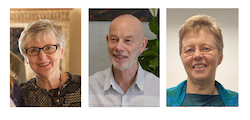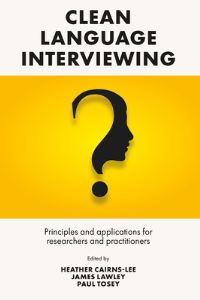This blog follows on from yesterdays’ piece about how fleeting sensations and body movements hold sway over what we feel and how we think. Siri Carpenter says that many cognitive scientists believe:[1]
Over millions of years our increasingly powerful cognitive abilities piggybacked on existing neural systems that evolved for simpler, physical tasks such as visual detection or spatial navigation. According to this view, thinking is reliving: I cannot reflect on last summer’s trip to the Grand Canyon without recruiting some of the same brain cells that recorded the sight of its majestically striped walls. I cannot process the plot of a novel without simulating the sensations the text describes nor judge the height of the hill ahead of me without mentally climbing it. “The brain simulates real experience in order to make sense of the world,” [Emory University psychologist, Lawrence] Barsalou says.
The notion that ‘thinking is simulation’ has been well know by hypnotherapists and NLP’ers for decades. And while the idea of ’embodied cognition’ has recently caught on, there were forerunners such as Humberto Maturana and Fransisco Varela who developed the Santiago Theory of Cognition in the 1970s and stated boldly “All knowing is doing.” [2]
I think there is a subtle yet important distinction between: “reliving” and “simulation”. Reliving suggests that we can experience again. This fits with the common notion that memories are like photographs that capture the moment and preserve it for later recall. Whereas many brain scientists such as Gerald Edelman, insist that we recreate our ‘memories’ each time we remember them. [3] This is a much more active process whereby each remembering is subject to change. What might be called ‘memory drift’ is a well-documented phenomenon. It has been shown that even ‘unforgettable’ memories such as where you were when you heard President Kennedy was assassinated or Lady Diana was killed in a car crash are subject to huge revision and inaccuracies.
Therefore I prefer Barsalou’s term ‘simulation’ because it suggests we are only ever creating a facsimile what ‘actually’ happened. This line of reasoning has huge implication for criminal trials and for psychotherapy.
For a start, the heated ‘recovered memory’ debate around whether something ‘actually’ happened or not becomes sterile. All memories are subject to later revision whether they are ‘recovered’ or not. If this is so, then what? Well, humankind is coming to terms with accepting that our biological, sociological, genetic, environmental, ancestral, prenatal and every other factor from the past has influenced who we are today. That is the way it is for us as individuals and as a species.
I’ve lost count of the number of clients who disclose that so and so happened to them as if that, in and of itself, is a reason for their current situation. Events are just events until they are put into a narrative, only then do they become explanatory.[4] I fully respect the some people have experienced horrendous difficulties and traumas. And yet here they are, living their life. I never cease to be in awe of the resilience of people to endure and continue developing. Life has, for whatever reason, dealt them this hand. How are they going to play it from now on? One of the most valuable questions Penny Tompkins and I ask is: How would you like to play that hand?
You may not be able to do anything about the past, but you sure can have an influence over what happens next. And as those ‘next’ moments accumulate they set us on a trajectory. Even the slightest deviation from the current trajectory – determined by everything that has gone before – will, in the long run produce a very different future. We can’t control it, but we can have a say – we just need to speak up.
References
1. Scientific American Mind (Jan/Feb 2011, pp. 38-45) ‘Body of Thought: Fleeting sensations and body movements hold sway over what we feel and how we think’, Siri Carpenter. Full article at: scientificamerican.com/article.cfm?id=body-of-thought
2. Humberto Maturana and Francisco Varela, The Tree of Knowledge, 1992. For a summary of Fritjof Capra’s take on the Santiago Theory of Cognition, see Penny Tompkins and my article, Constructivism is Only a Construct. [Link available soon]
3. Gerald Edelman, Bright Air, Brilliant Fire, on the Matter of the Mind, Allen Lane 1992.
4. For our take on ‘explanation’ in relation to other kinds of information see our article, REPROCess: Modelling Attention.







